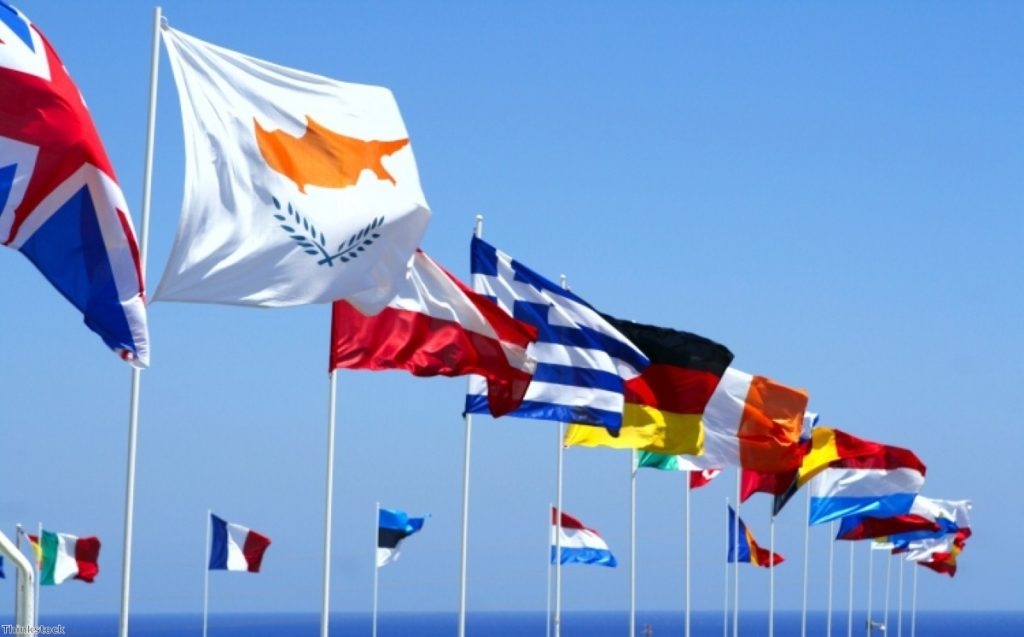Back to the 90s? Tory divides widen over Europe
By Alex Stevenson Follow @alex__stevenson
Old Conservative wounds over Europe appear to be opening once more as David Cameron prepares for his Brussels showdown later.
The prime minister is having dinner with EU leaders ahead of Friday's crucial summit, when German chancellor Angela Merkel and French president Nicolas Sarkozy will push for greater fiscal integration between the 17 eurozone states.
The stakes are extremely high for all concerned. Mr Sarkozy even warned that Europe faced "disintegration" if the crisis was not tackled effectively in a Marseille speech this afternoon.


Such apocalyptic rhetoric could make it harder for Mr Cameron to defend Britain's national interest, but the prime minister's spokesman insisted he was "focused" on getting a good deal for the UK.
"If I can't get what I want I will have no hesitation in vetoing a treaty at 27 because I am not going to go to Brussels and not stand up for our country," Mr Cameron said earlier. "That is what a prime minister should do and that is what I will do."
Eurosceptic Tories desperate to use the crisis as a chance to win back powers to Britain are determined that Mr Cameron strikes a hard bargain.
"This is a time of great opportunity to rewrite the history of Europe. The prime minister should grasp that opportunity," David Davis told the Today programme earlier.
Mr Davis, a former Europe minister, lost to Mr Cameron in the Conservatives' 2005 leadership election.
He said there was a "whole slew of things we need to take back control over" and added: "If we're going to have a two-tier Europe, we should define what it looks like. We cannot be told."
European leaders may deem it necessary to implement treaty changes affecting all 27 EU member states, which would give Mr Cameron more scope to demand the repatriation of powers to Britain.
Mr Davis said: "The raw politics of this is if there is a significant change in the balance of power in Europe, that's the test – if it has big implications for our future, that's the point at which you have to have a referendum."
The prime minister is keen to avoid giving the British people a vote because it would place the coalition government under huge strain. Its junior partners, the Liberal Democrats, are staunchly pro-European.
Deputy prime minister Nick Clegg said he worked "lockstep, hand in glove" with Mr Cameron on the government's approach to the eurozone crisis. He said their goal was to ensure Britain is "just simply treated fairly".
"As we are supportive to the eurozone so they can sort their problems out. In return they [must] introduce safeguards to ensure… that the single market is not fragmented and that important industries like the financial services industry are treated fairly," the Liberal Democrat leader – a former MEP – said.
Mr Cameron also received support from his predecessor as leader of the Conservatives, Michael Howard, who told the Today programme that there would not be any further transfer of power from Britain to Europe, so "the referendum issue doesn't arise".
But other Tory politicians have given views at odds with No 10's in the last 48 hours.
Northern Ireland secretary Owen Paterson told the Spectator that he thought an EU referendum was "inevitable" at some stage in the future, while London mayor Boris Johnson said Mr Cameron should "veto" any move to create a "dominant economic government".

